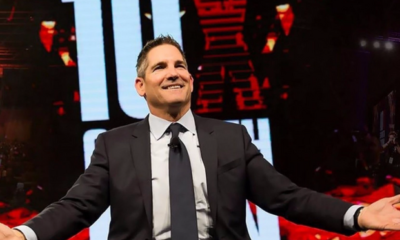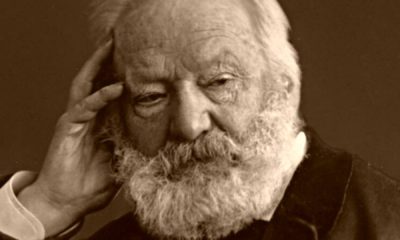Success Advice
How the Coronavirus Made Me Into a Teenage Author

I am grateful for quarantine. It forced me to sit my butt down on a chair and think about what I wanted to do with the next two months of my seemingly empty existence. It forced me to list a number of things that I was good at — one of which included writing. It forced me to hatch out a 31,000 word 124 page book in less than three weeks. It made me into a published author… at the age of 15.
STEP ONE: The First Wave
So, a bit of background story to begin with. Since I lived in China, the first wave of the COVID-19 pandemic hit my high school at the end of February. At that time, I was still on a Chinese New Year trip back to my hometown in Taichung, Taiwan. I was safe for the time being… and I was bored out of my mind.
Online classes began almost immediately when the school’s return date was postponed. I can tell you that I slept till noon, spent approximately three hours per day on Instagram, and binge watched every Netflix show available. After a whole month of endless procrastination and moping around the house, I felt incredibly sick with myself. It was then that I changed my entire routine, and set ONE GOAL for myself. I was going to write a book.
STEP TWO: The Ultimate Plan
When I first decided to sit down and write a book, I was determined to actually FINISH the book. I knew myself a little too well. In the past, I have always tried to write a novel, but I could never FINISH writing it. I would write ten pages for the first chapter, read it over, and not be satisfied with it to continue.
“If you want to be a writer, you must do two things about all others: read a lot and write a lot.” – Stephen King
To solve this problem, I set up a strict schedule for myself. Here is how I organized this schedule:
What’s Your Daily Word Count?
I forced myself to write 1,000 words per day, AND it didn’t matter if I was uninspired or unmotivated on a particular day — I made myself sit in front of my computer for 1–6 hours per day to write 1,000 words for my book.
I know that everyone writes at their own pace. Some people can only do 200 words per day and others can go up to 3,000. My advice is to be consistent with your daily word count, and don’t stress yourself out by setting an extremely high daily word count.
Eventually, I doubled my word count because I had the time to write more. During my last week of writing my book, I pushed myself to complete 2,000 words per day.
You Cannot Decide The Length of Your Book
I didn’t know how long my book was going to be — a conventional e-book length of 12,000 words, a standard business book length of 80,000 words, or a young adult targeted book of 50,000 words? My book is an e-book targeted at teenagers about business.
Later on, I predicted that my book would be around 35,000 words. After my editor returned my rough draft back to me, it was cut down to 31,000 (she deleted an entire chapter). For a book’s word count, it’s always going to be different. The most important part is not your word count, but YOUR CONTENT.
How To Plan Your Book’s Content
In a OneNote page, I jotted down the main contents of my book TO GUIDE MY WRITING. This included the chapters, subsections, and core ideas, important points and messages.
Why do I say guide my writing? Well, there are a lot of writers that love to be “spontaneous” and they only write when they feel “inspired.” The truth is, this isn’t the most productive way to go about writing a book, especially if your career path is to be a bestselling novelist. Guided writing (or a pre-planning process) can definitely help you write faster and with higher efficiency.
For the writing process, I can only think of one word: consistency. I knew that if I slacked off today, I would lose the motivation to continue writing the next day and the next day. It was like keeping a Snapchat streak — but only having to write 1,000 words a day.
How Are You Going To Publish Your Book?
You’ve probably heard of self-publishing, but you’ve probably never heard about how terribly tiring and frustrating it can be. To begin with, I self-published my book, Business Insider with a Teenager, on Kindle Direct Publishing (KDP). A little definition time: KDP is a self-publishing service created by Amazon that publishes your book to Amazon and Kindle stores.
First of all, it’s free. Second of all, it was not easy to do. From creating your own cover to formatting your book on Kindle Create, the whole publishing process was not fun to deal with.
Although KDP provides a lot of helpful tools and tutorial videos, there are still a lot of things that you have to learn along the way. There are so many self publishing services out there (Kobo Books, Apple Books, Google Play Books, Ingram Spark), but the top recommended one is KDP.
“If there’s a book that you want to read, but it hasn’t been written yet, then you must write it.” – Toni Morrison
Last Word
Bestselling author or not, I WROTE A BOOK. I can slap the title of “author of Business Insider with a Teenager” on my bio, talk about it in my job interviews, and write it into my college applications.
The coronavirus is one of the most traumatic and rare experiences that the world has ever encountered. Industries have changed — some individuals have started their own business, others have gone bankrupt.
Me? I became an author, got a huge opportunity to become a social media marketing manager at a local company, started writing for a local magazine, took on local professional photography and videography gigs, and still manage to get decent grades in my sophomore year at high school.
Quarantine gave me the opportunity to slack off or to do better. In the end, the decision was simple. I chose to get to work.
Business
If Your Business Internet Keeps Letting You Down, Read This
From smoother operations to better security, dedicated internet access is quietly powering today’s high-performing businesses.

Today, a dependable internet service is the bedrock for uninterrupted business operations. Many organizations rely on stable online connections for communication, data transfer, and customer interaction. (more…)
Did You Know
How Skilled Migrants Are Building Successful Careers After Moving Countries
Behind every successful skilled migrant career is a mix of resilience, strategy, and navigating systems built for locals.

Moving to a new country for work is exciting, but it can also be unnerving. Skilled migrants leave behind familiar systems, networks, and support to pursue better job opportunities and a better future for their families. (more…)
Life
10 Research-Backed Steps to Create Real Change This New Year
This New Year could finally be the one where you break old patterns and create real, lasting change.

Every New Year, we make plans and set goals, but often repeat old patterns. (more…)
Change Your Mindset
The Silent Skill That Makes People Respect You Instantly
What truly earns respect and why most people go about it the wrong way

Everybody craves respect but not everyone earns it. Some people believe that a title, years of experience, or a position of authority automatically entitles them to respect. (more…)
-

 Health & Fitness1 week ago
Health & Fitness1 week agoWhat Minimalism Actually Means for Your Wellness Choices
-

 Did You Know1 week ago
Did You Know1 week agoWhy Most Online Courses Fail and How to Fix Them
-

 Business1 week ago
Business1 week agoIf Your Business Internet Keeps Letting You Down, Read This
-

 News4 days ago
News4 days agoBrandon Willington Builds 7-Figure Business by Ignoring Almost Everything

























